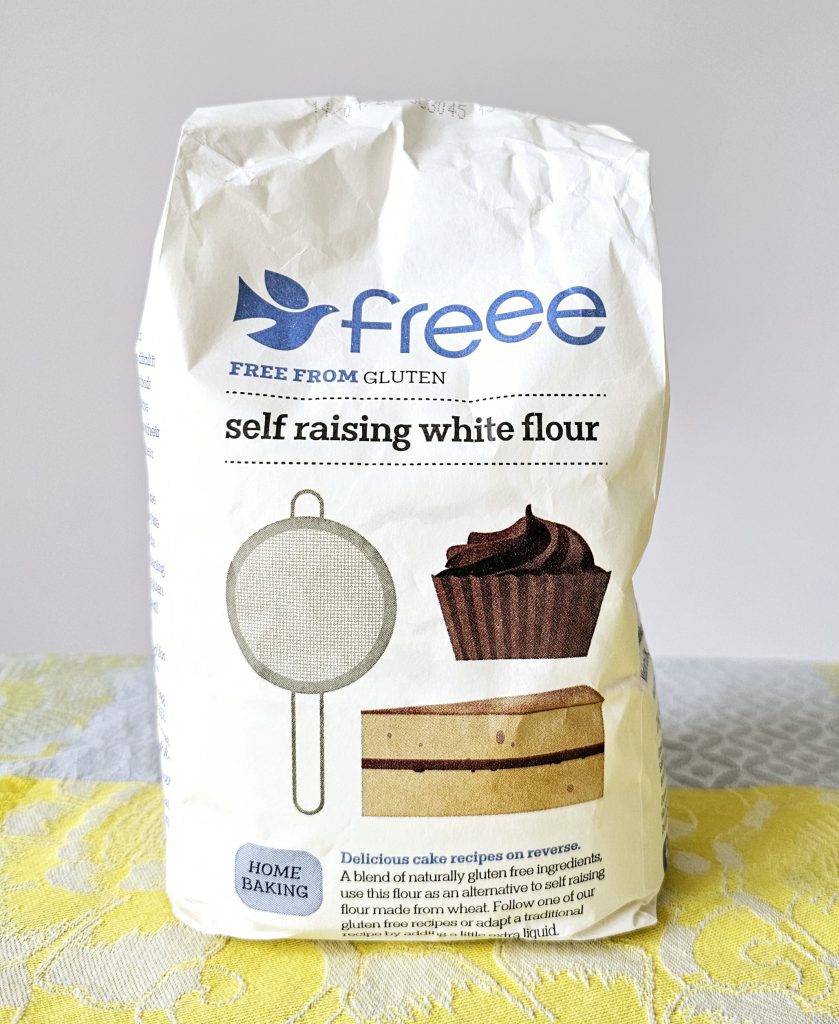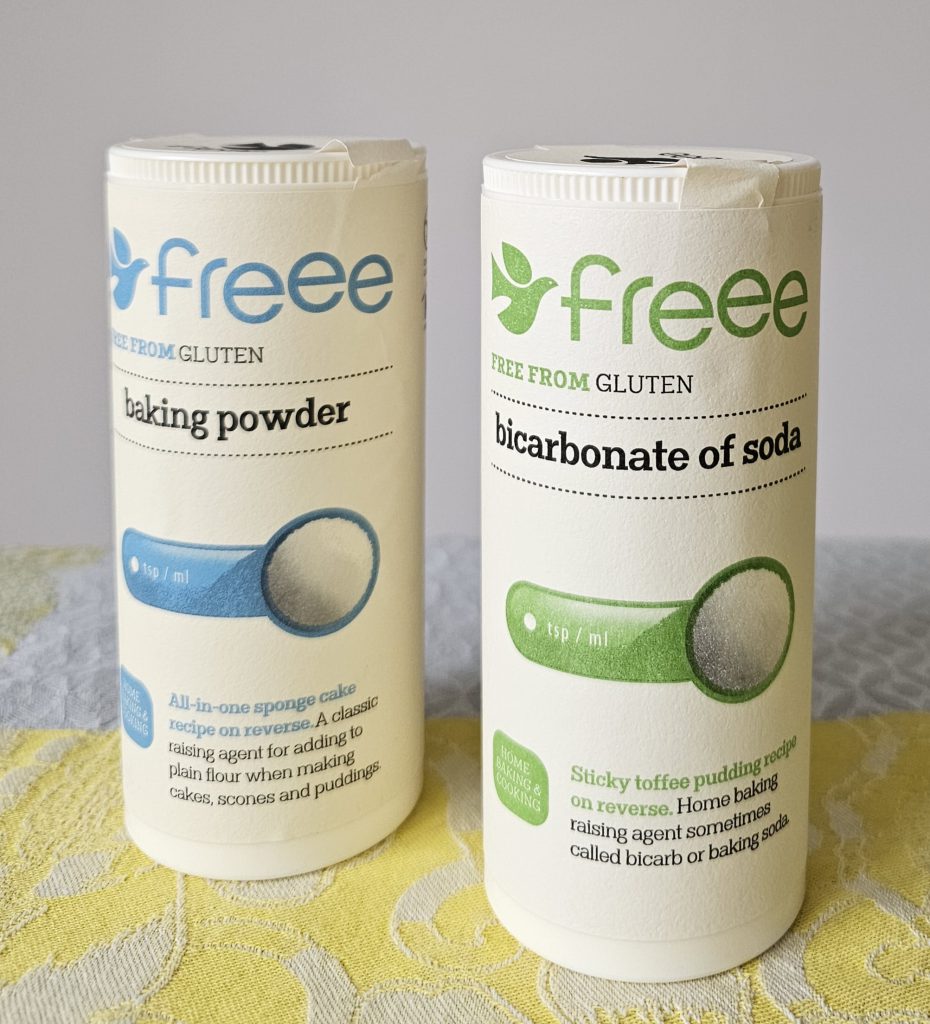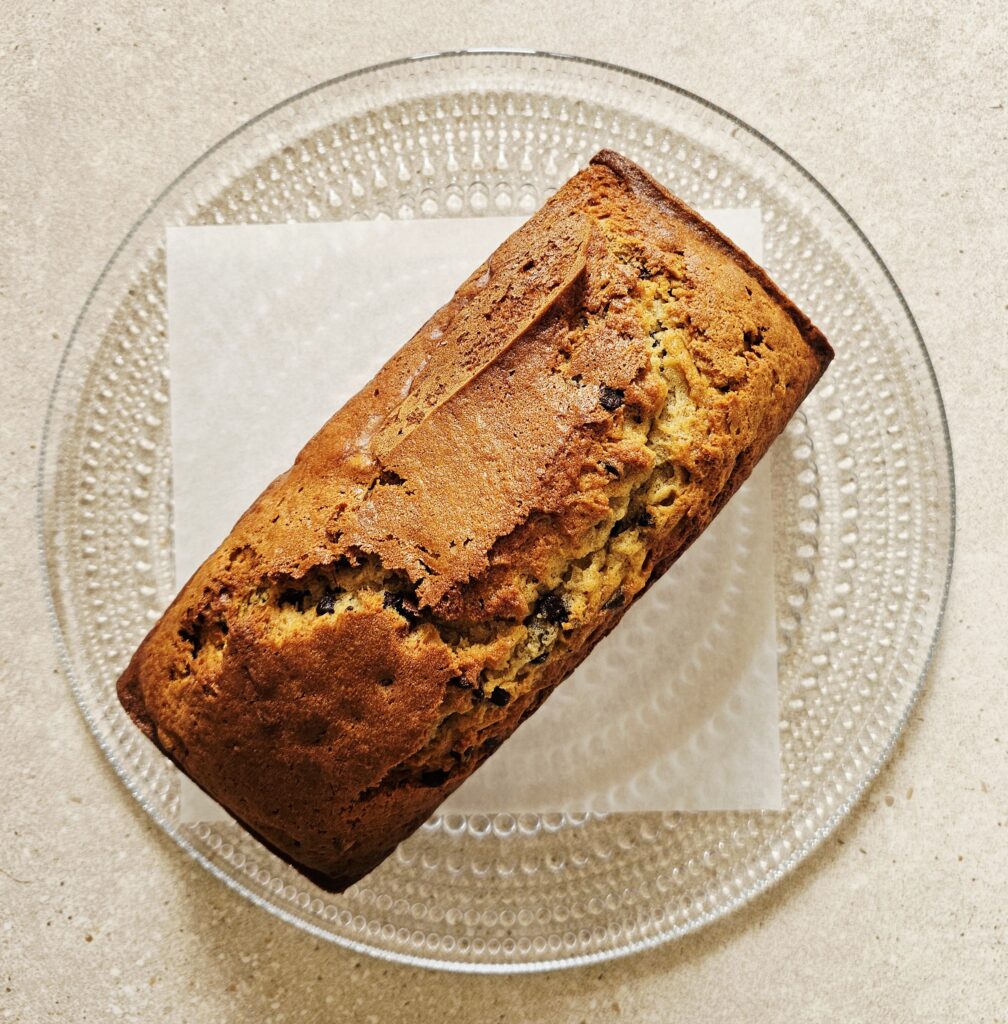
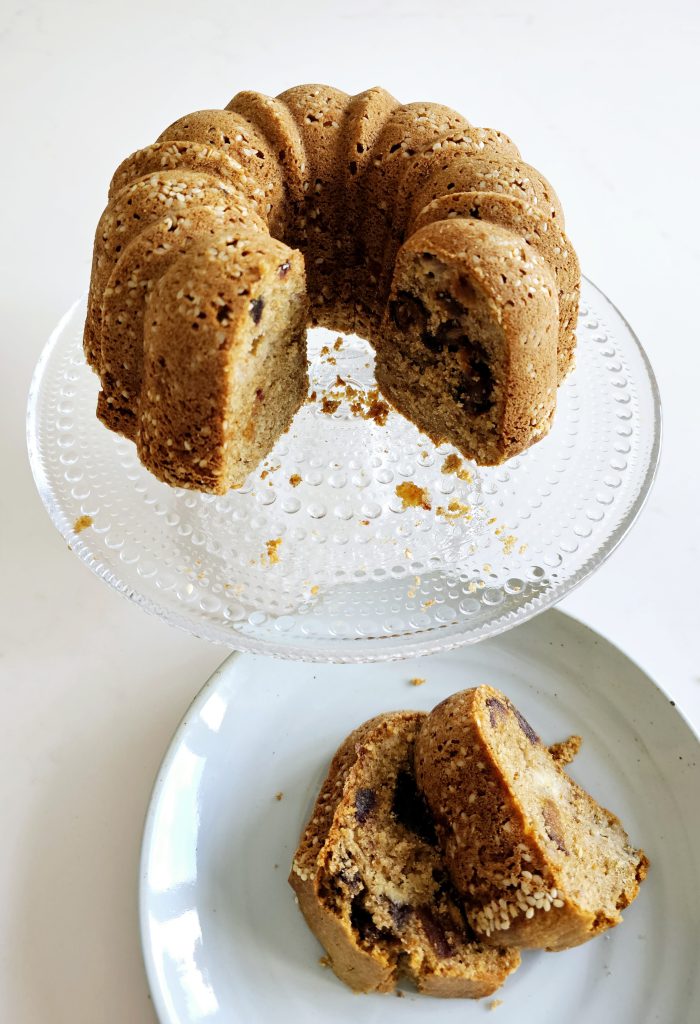
I have just finished watching the latest series of Masterchef UK and am in full admiration of the competitors and their ambition. Most would like to own and run at least one restaurant, and to achieve Michelin star status. Me? I am happy to get to the end of the day with something decent on the table.
This is why I love baking. It is so, so simple to bring together a few ingredient and have something to show for it an hour later. Recently I have been baking my cakes in Bundt pans and re-working a few older recipes. I am trying out spelt flour in my cake baking for a change, instead of using regular wheat flour. In line with the doctor’s advice, I have also reduced the sugar by 20%.
Today’s cake includes dates, banana and tahini. The original recipe (made in a square tin) is here, which has notes on which type of tahini to use. Make sure you stick a long metal spoon into the tahini before first using, to scrape up the solid paste which has settled at the bottom of the jar. Stir this solid paste into the more liquid paste on top.
For today’s cake I used a Lebanese tahini
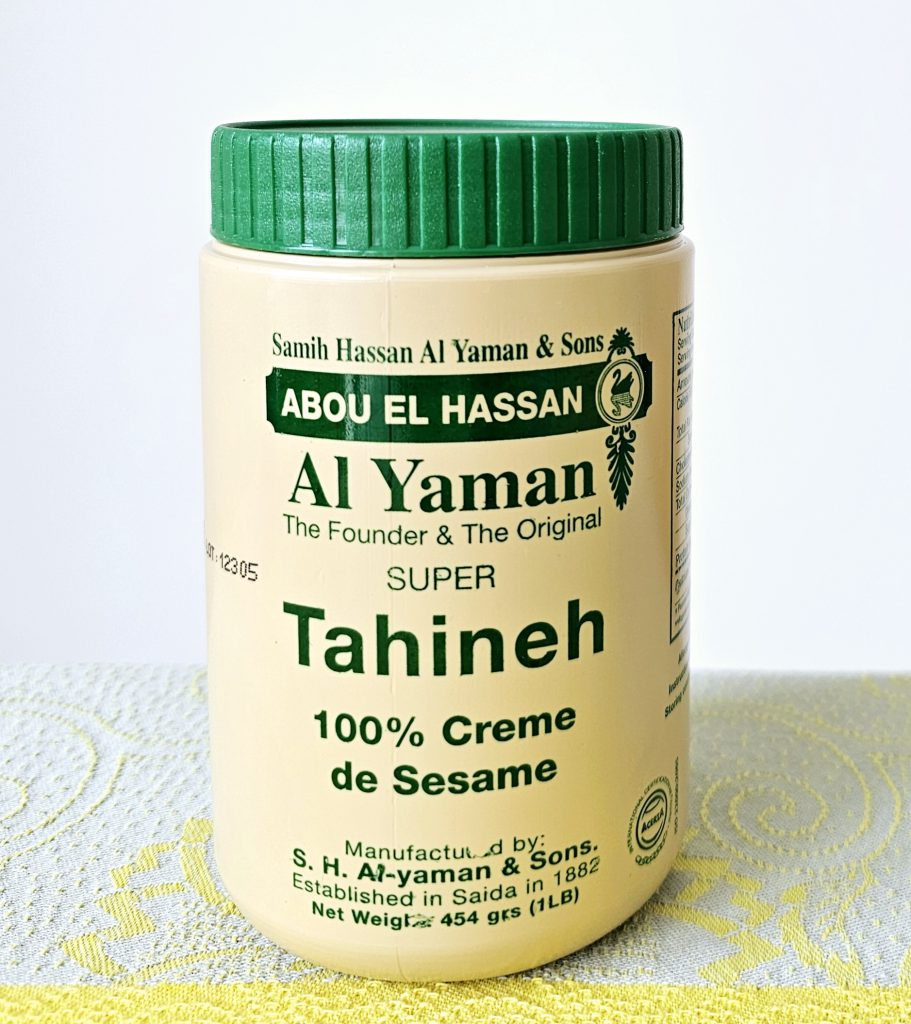
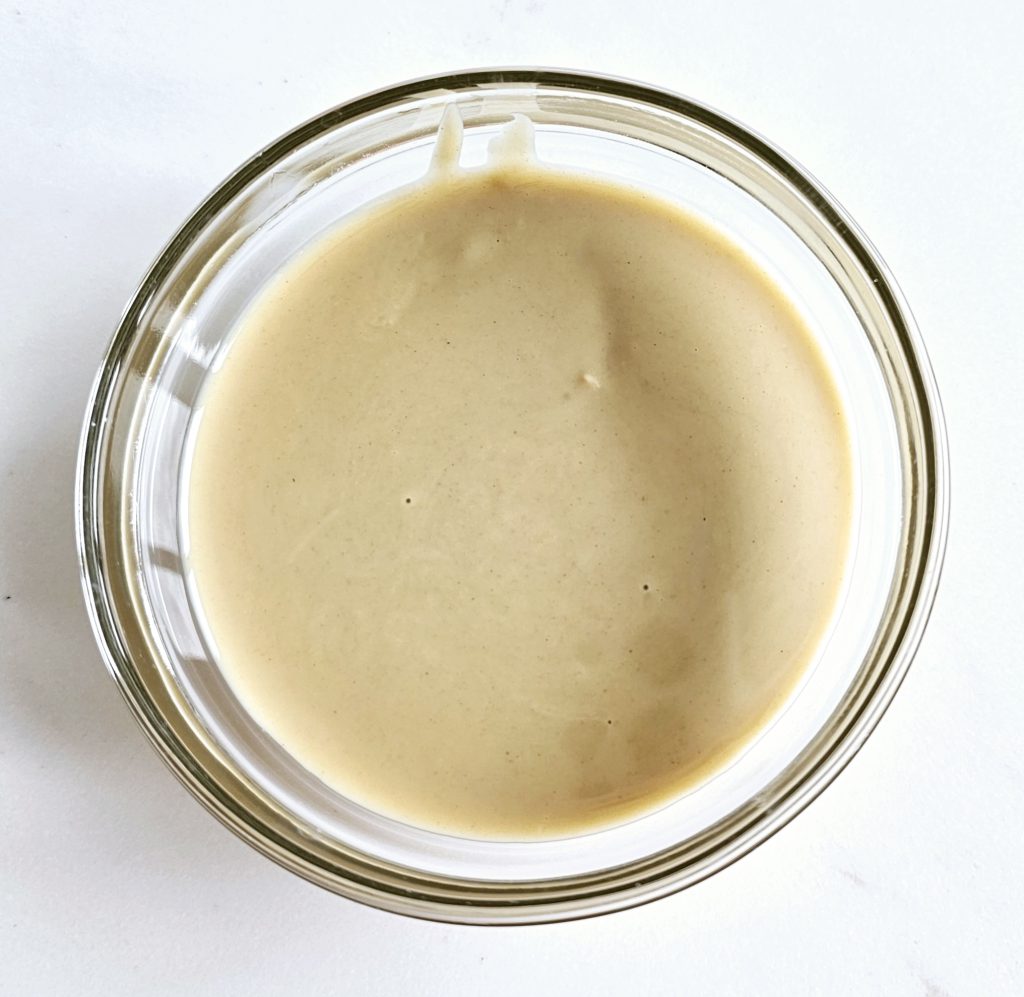
Simple but naturally sweet additions of crushed bananas and chopped dates lessen the need for too much sugar in the cake
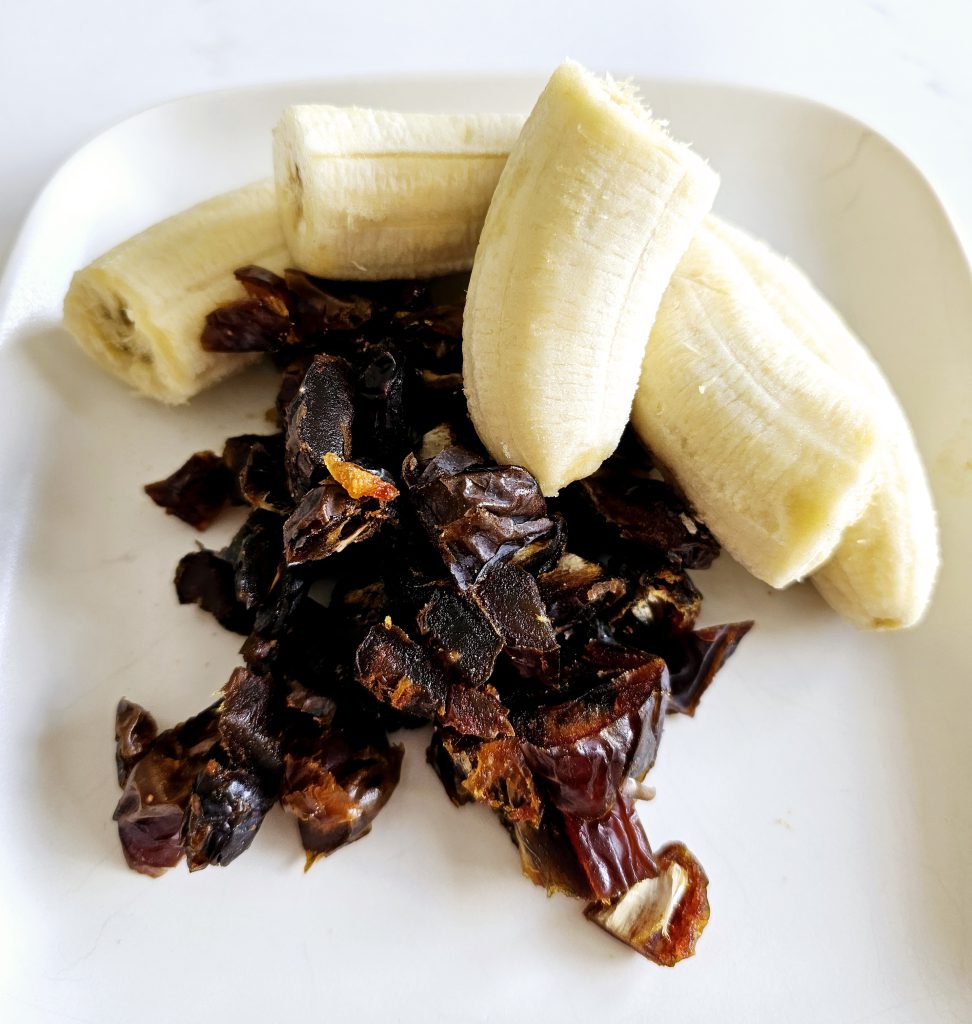
I used a 6 Cup Anniversary Bundt Pan and prepared it with butter, sesame seeds and flour, to prevent the cake from sticking
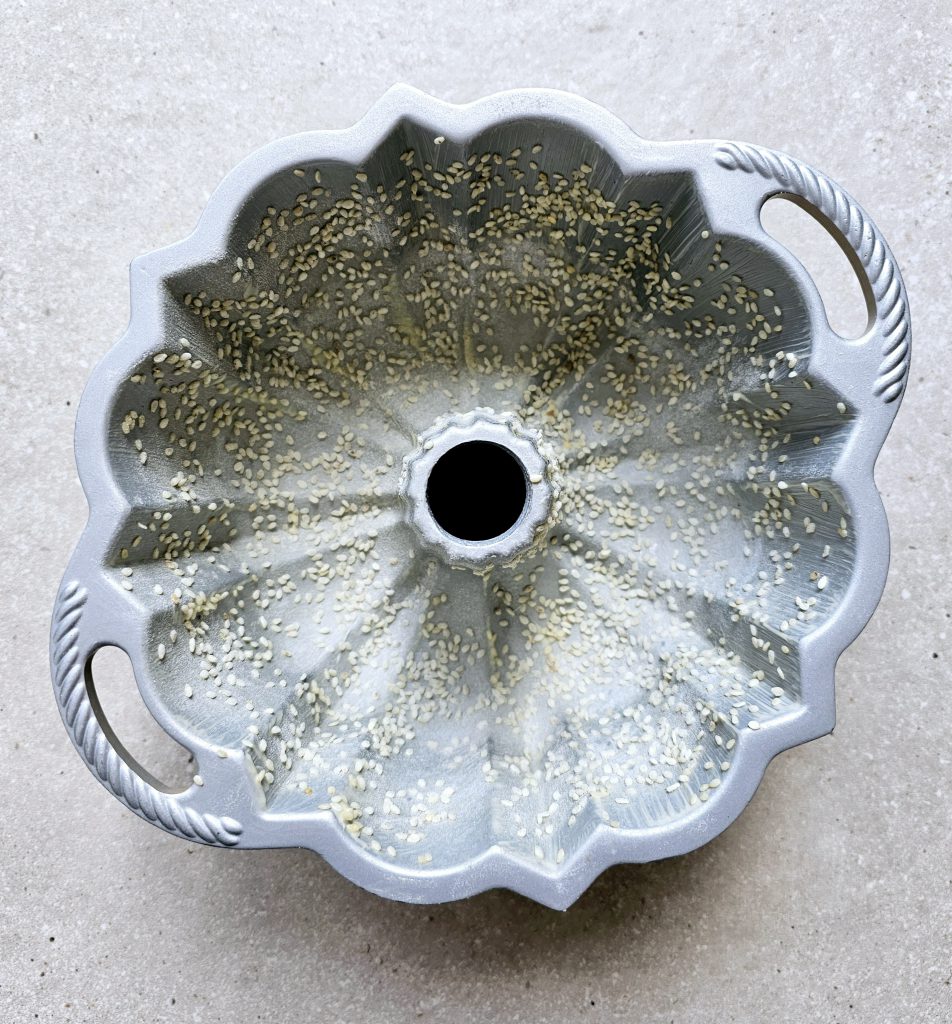
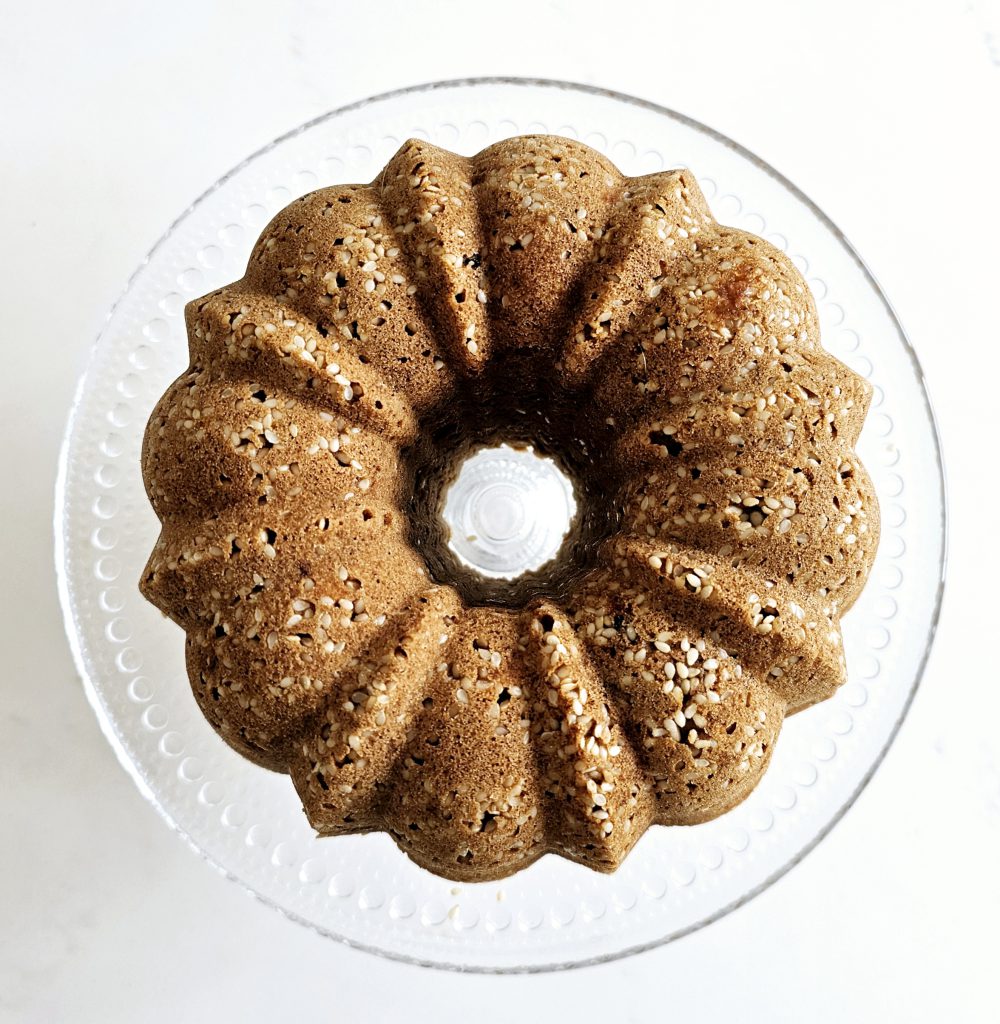
For the Cake:
2 large eggs
80 g light or dark brown soft sugar
100 g sunflower oil
175 g wholegrain or white spelt flour (I used a 125 g wholegrain/ 50 g white mixture)
1½ teaspoons baking powder
¼ teaspoon bicarbonate of soda
Pinch of salt
150 g pitted Medjool dates, cut into small pieces
200 g ripe bananas, broken into pieces and lightly crushed
50 g tahini (preferably Middle Eastern tahini)
1 teaspoon vanilla extract
10 g each softened butter and plain flour to line the Bundt pan
2 – 3 teaspoons untoasted white sesame seeds
You will need a 6 Cup Anniversary Bundt Pan. The cake can also be made in a 2 pound / 900 g loaf tin or a 20 x 20 cm square tin.
How to Make:
Preheat the oven to 170°C/ 150°C fan.
Brush the softened butter evenly over the entire inside of the pan, taking care to fill every corner. Sprinkle over the sesame seeds, which will stick to the butter.
Sift over the flour, moving the pan around to coat evenly. Remove the excess flour by turning the pan upside down and giving it a tap (do this over a sink). Set the pan aside.
Sift the flours, baking powder, bicarbonate of soda and salt together into a large bowl. Set aside.
In a large mixing bowl, whisk together the eggs and sugar until thick and creamy. Whisk in the oil slowly.
Add the flour mixture and, using a silicon spatula, gently fold into the whisked egg mixture.
Add in the dates, banana, tahini and vanilla extract. Gently fold everything together until well mixed.
Spoon the mixture into the prepared pan.
Level the surface and tap the pan on a folded dishcloth to settle any bubbles.
Bake in the oven for 50 minutes or until the cake bounces back when touched. A metal skewer inserted in the centre should come out clean.
Leave the cake to cool slightly in the tin before turning out onto a wire cooling rack to cool completely.
The cake will slice into eight thin and eight thicker pieces – perfect for a sharing with friends, and perfect for picnics.
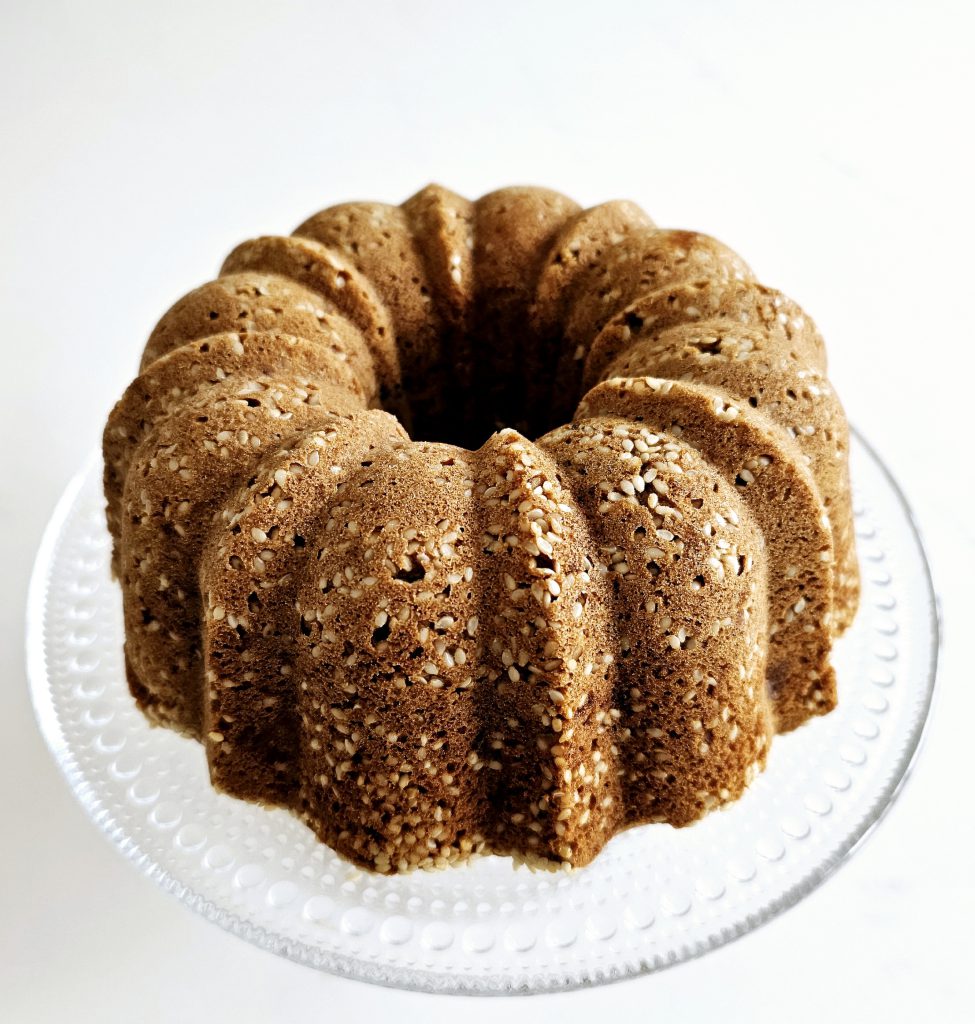
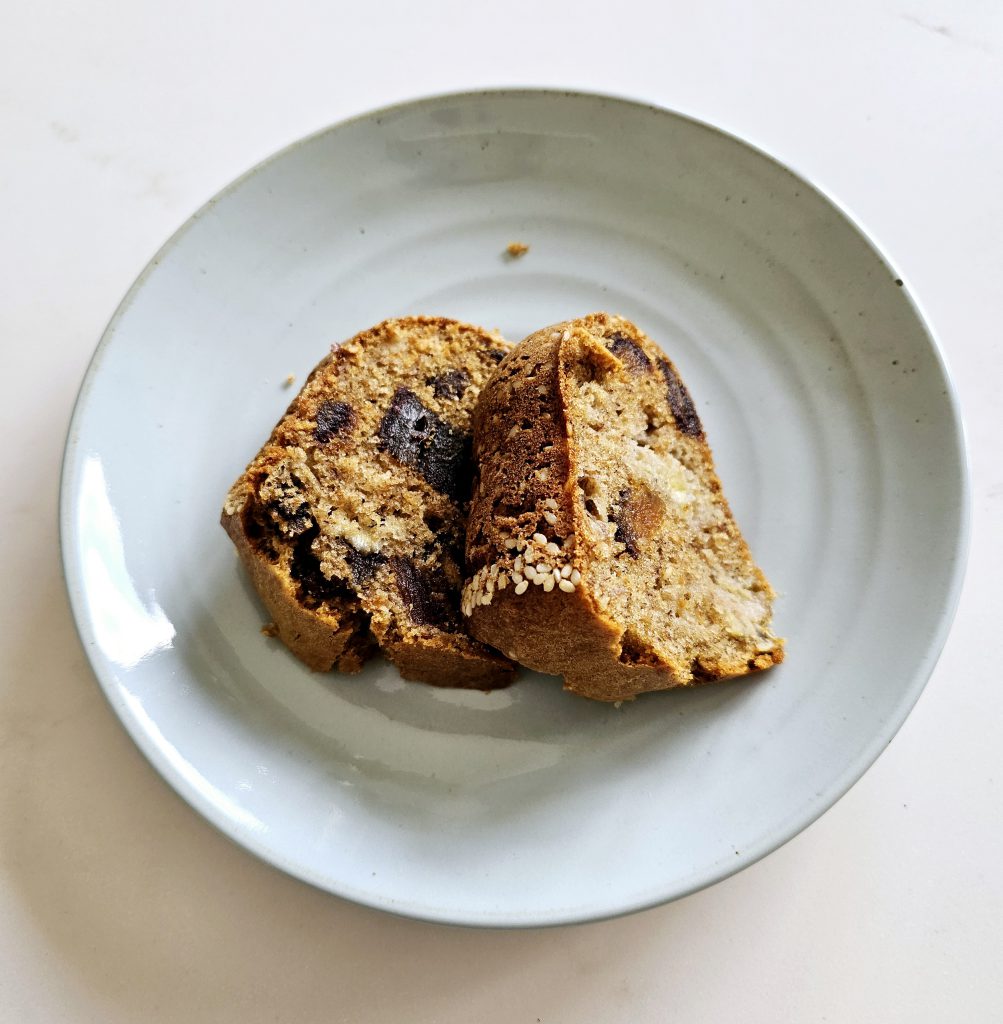
Millers of spelt flour in the UK: Doves Farm and Shipton Mill. I use their flours regularly and highly recommend them.
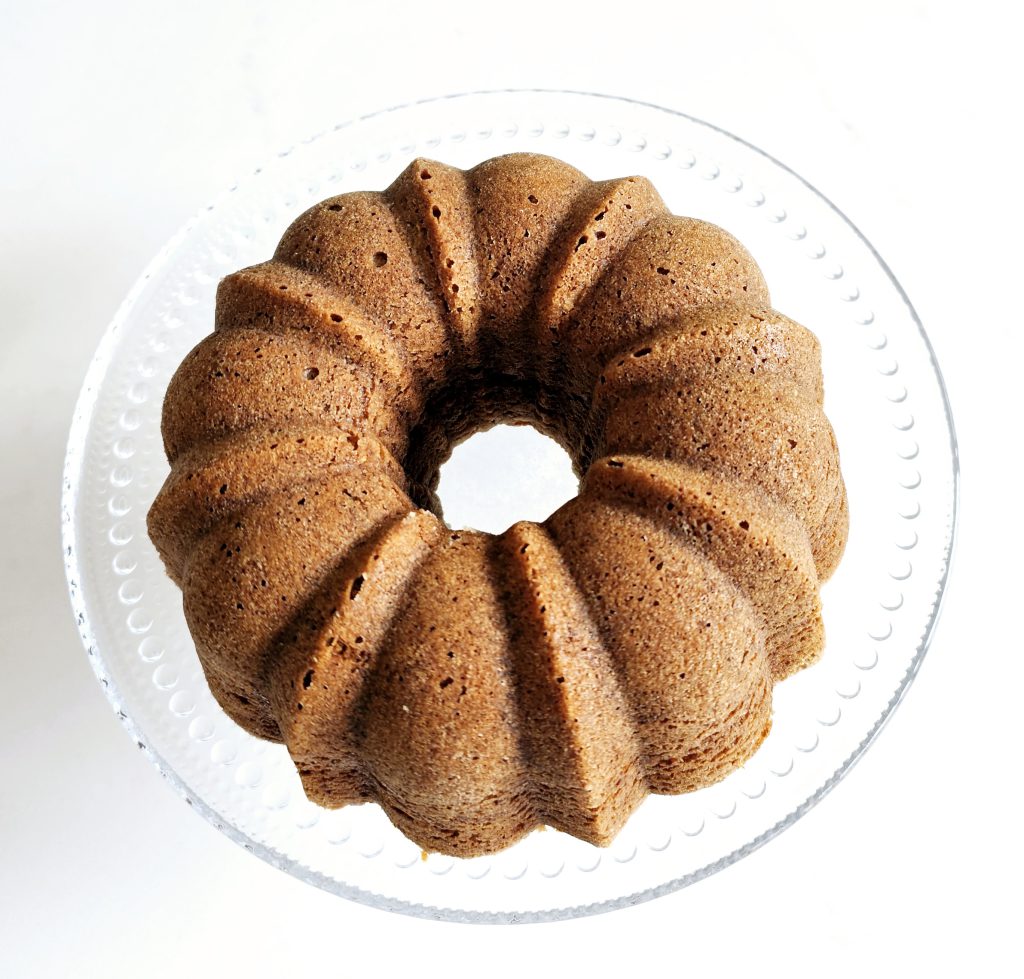
One of a number of nursery rhymes the children and I used to sing together:
Pat-a-cake, pat-a-cake, baker’s man
Bake me a cake as fast as you can
Roll it, pat it, and mark it with a B
Put it in the oven for Baby and me.
How fast can you bake a cake?
In my Home Economics classes at school, I learnt the different methods of making cake batter e.g. the creaming butter and sugar method, the whisking egg and sugar method. All add air into a batter so the cake would rise and hold its shape. I understood the science behind it, but it was also time consuming.
Imagine my surprise when I first watched Nigella Lawson putting all her cake ingredients into a food processor, giving it a whizz and pouring the batter into a baking tin. How revolutionary, and contrary to everything I had been taught previously. That Ms Lawson’s cake rose and looked very edible was the start for me to see how far I can push things when pressed for time.
There is only so much you can adapt. Definitely, you cannot make a chiffon cake unless you are prepared to wait whilst the egg whites get whipped up separately. For other simpler cakes (what I call butter, eggs, sugar and flour cakes) you can pretty much use a food processor to make the batter without compromising on the quality.
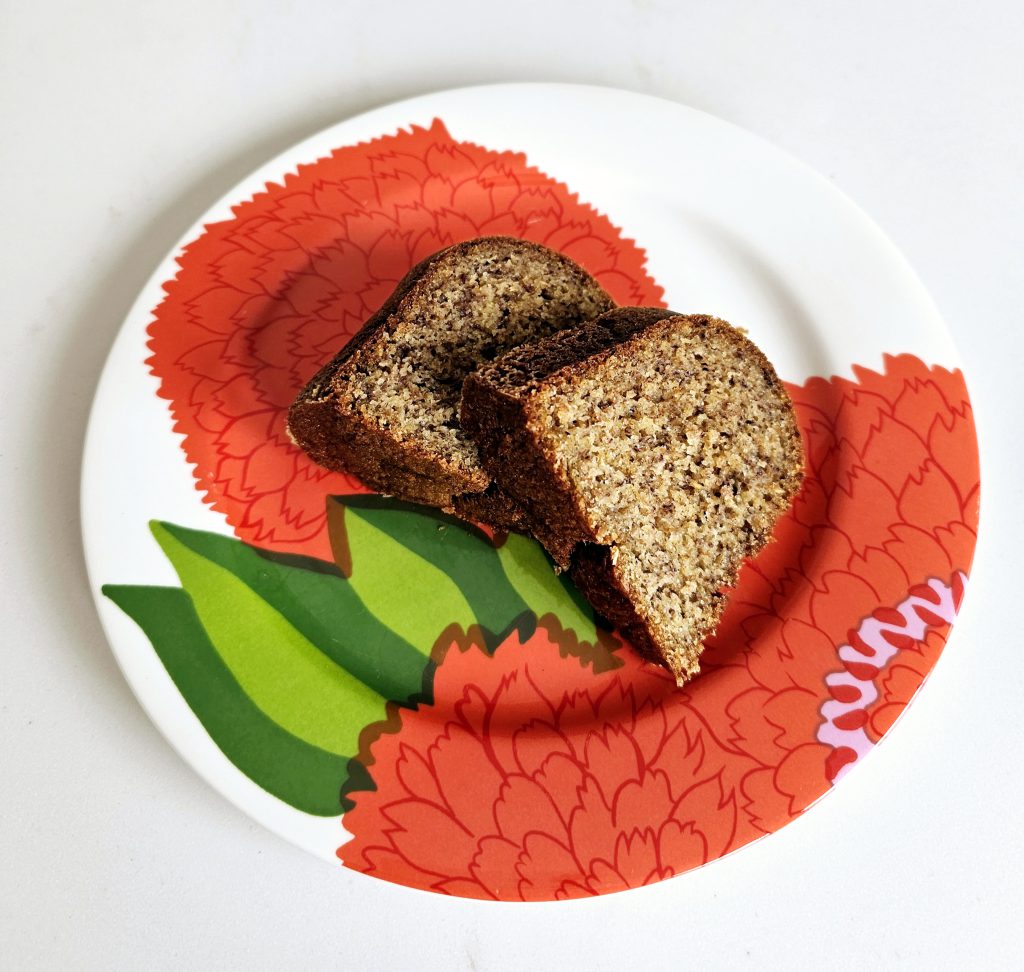
In the past few weeks I have been making batch after batch of banana cake, using different methods. I wanted something that was easy to make, looked presentable and which could also have add-ons like seeds, nuts and chocolate. I also wanted a gluten-free version for my mother-in-law.
The recipe here is what I made today, using spelt flour to up the fibre content of the cake. There is a substitution and add-ons list at the bottom of this page for ideas on how to make this cake your own.
I have always made my cakes in loaf tins or round tins. Currently I am in a bundt pan phase as their shapes make the plain cakes look so much more appealing. Here then is a banana bread recipe adapted for use in one of these shaped pans.
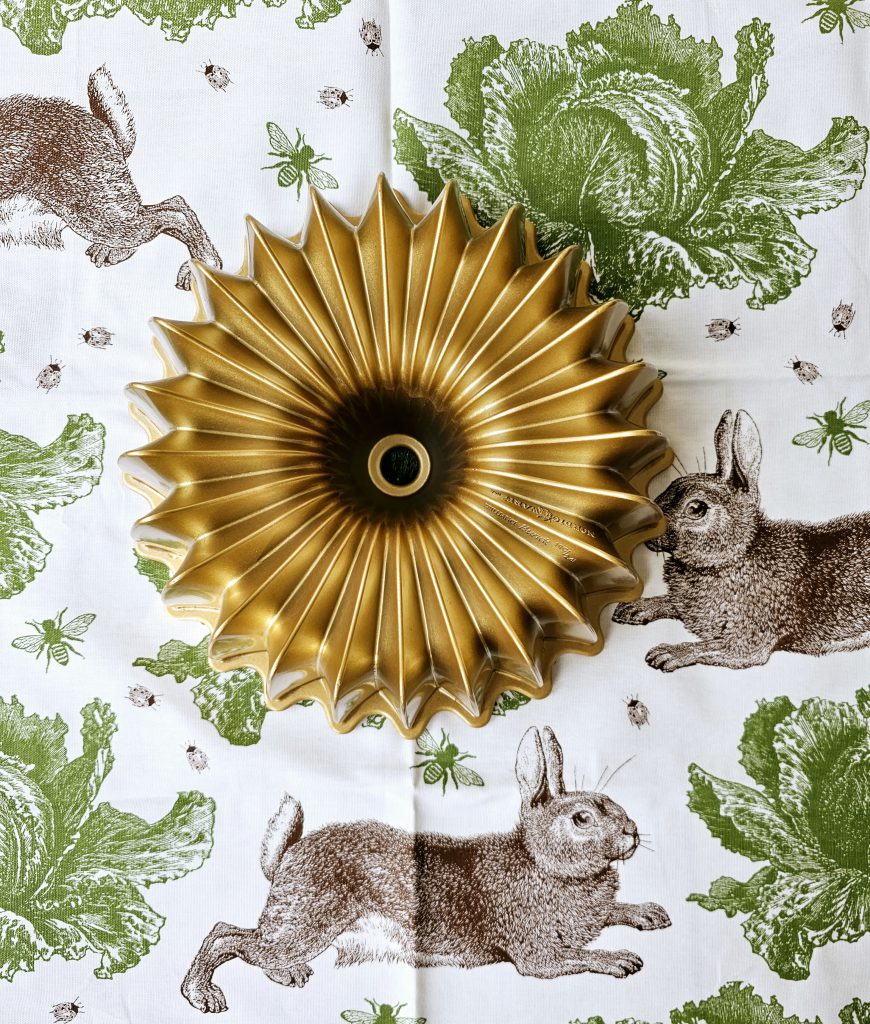
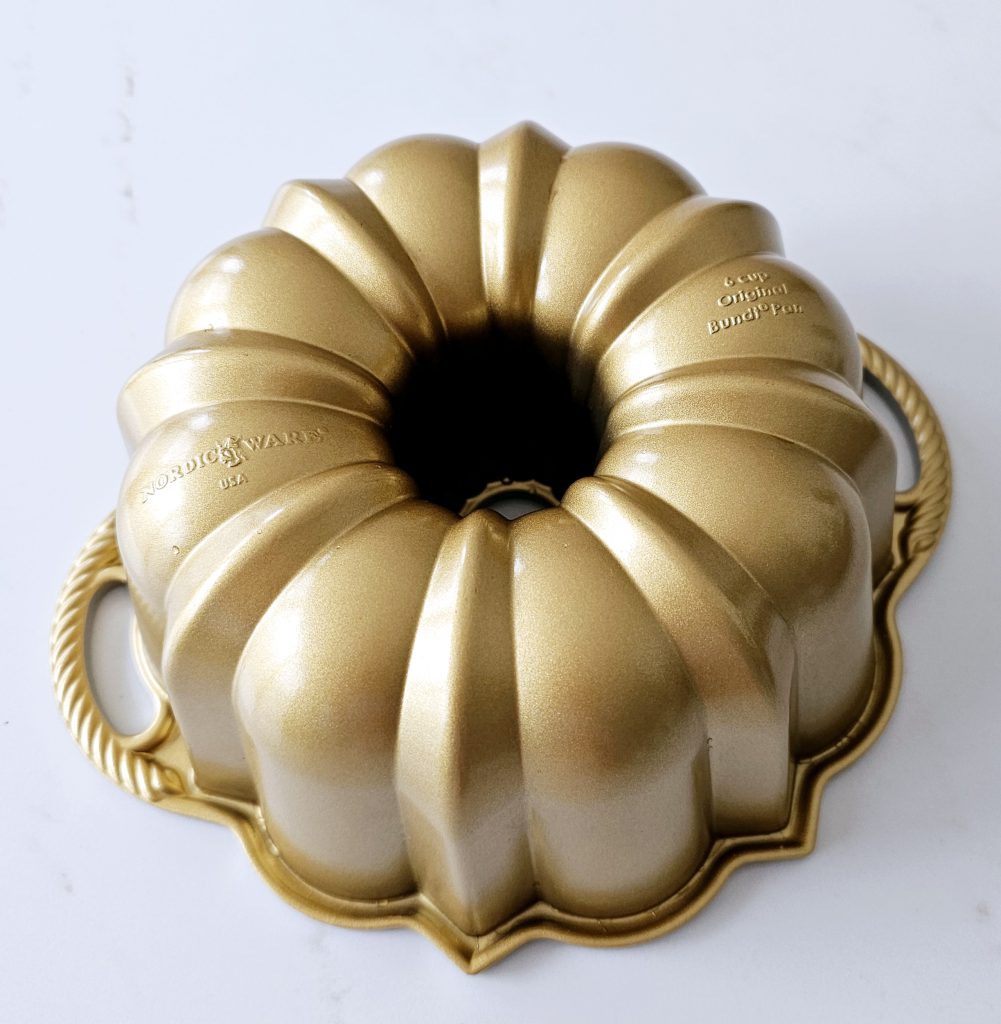
For a 6 cup bundt (see below for a 10 cup bundt)
80 g unsalted butter, very soft
80 g unrefined caster sugar
2 medium eggs (100 g without shell)
210 g ripe bananas, each cut into 4 pieces
135 g spelt flour
1¼ teaspoons baking powder
¾ teaspoon bicarbonate of soda
¼ teaspoon fine sea salt
60 g soured cream
1½ teaspoons vanilla extract
You will also need a 6 cup bundt pan. The recipe can be increased proportionately to fit a larger 10 cup pan. I used a Thermomix but you can also use a food processor. The results would be the same.
How to Make:
Preheat the oven to 170°C/ 150°C fan.
Brush 10 g of softened butter (15 g for the 10 cup bundt pan) evenly over the entire inside of the pan, taking care to fill every corner. Sift over some plain flour, moving the pan around to coat evenly. Remove the excess flour by turning the pan upside down and giving it a tap (do this over a sink).
Place the butter, sugar, eggs, banana, flour, baking powder, bicarbonate of soda, salt, soured cream and vanilla extract into the TM bowl. Mix 20 seconds/ speed 5. That’s how fast it is.
Pour the batter into the bundt pan and bake for 50 minutes (55 minutes for the 10 cup bundt) or until the cake bounces back when touched. A metal skewer inserted in the centre should come out clean.
Leave the cake to cool in the pan for 15 minutes, then turn out onto a wire rack to finish cooling. Today we ate the cake warm, after a sandwich lunch. Last week we brought a few slices (walnut version) to the Cotswolds with us for a picnic tea.
10 cup bundt with walnuts
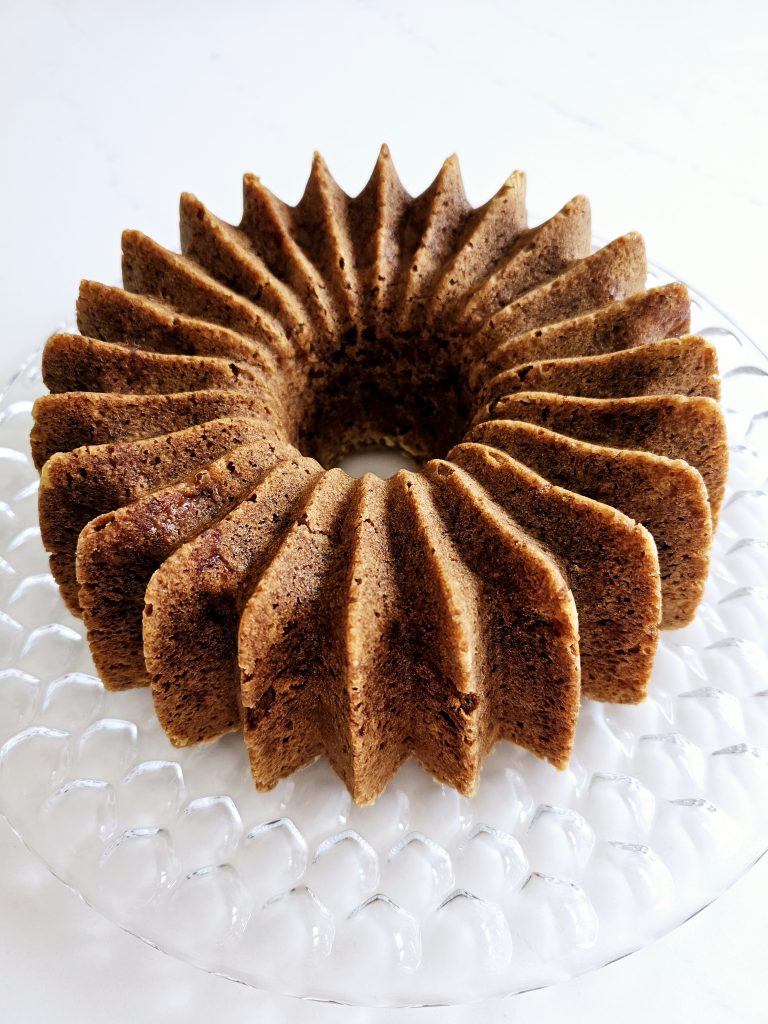
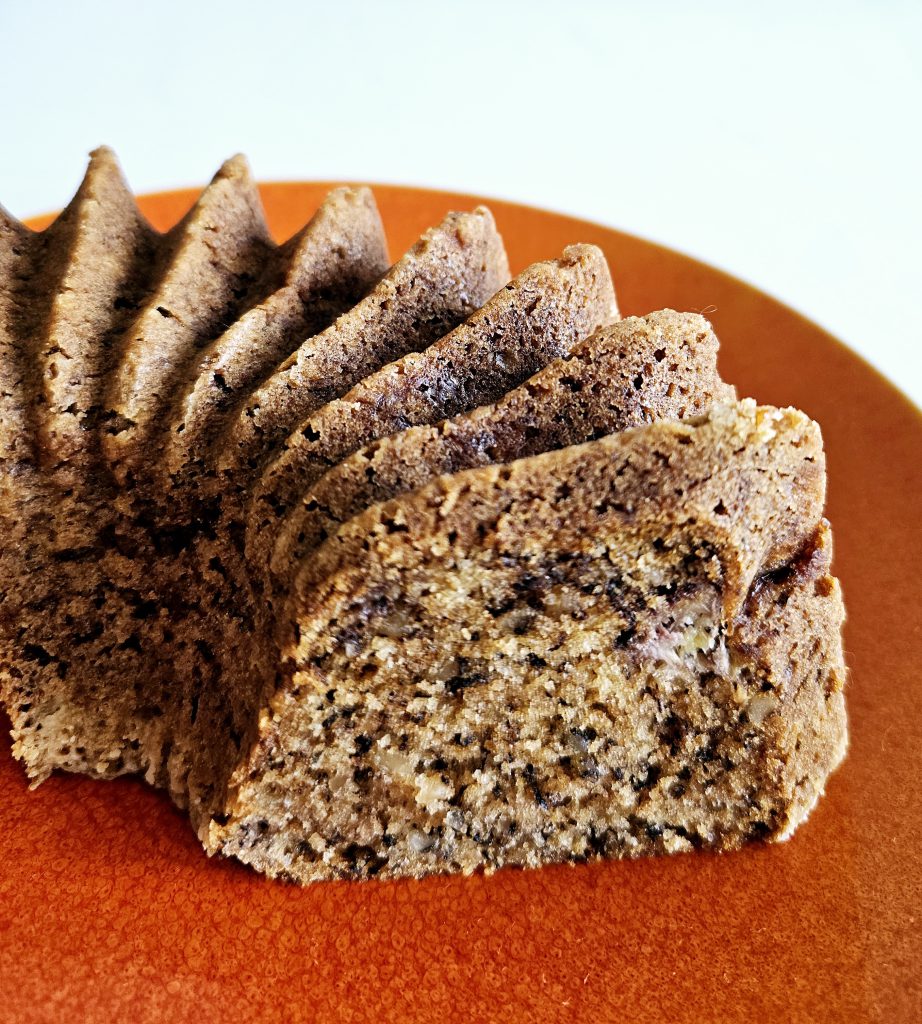
For a 10 cup bundt:
135 g unsalted butter, very soft
135 g unrefined caster sugar
3 large eggs (165 g without shell)
350 g ripe bananas, each cut into 4 pieces
225 g spelt flour
2 teaspoons baking powder
1 teaspoon bicarbonate of soda
½ teaspoon fine sea salt
100 g soured cream
2 teaspoons vanilla extract
Gluten-free version, which turned out to be the most popular on account of its sponge-like texture
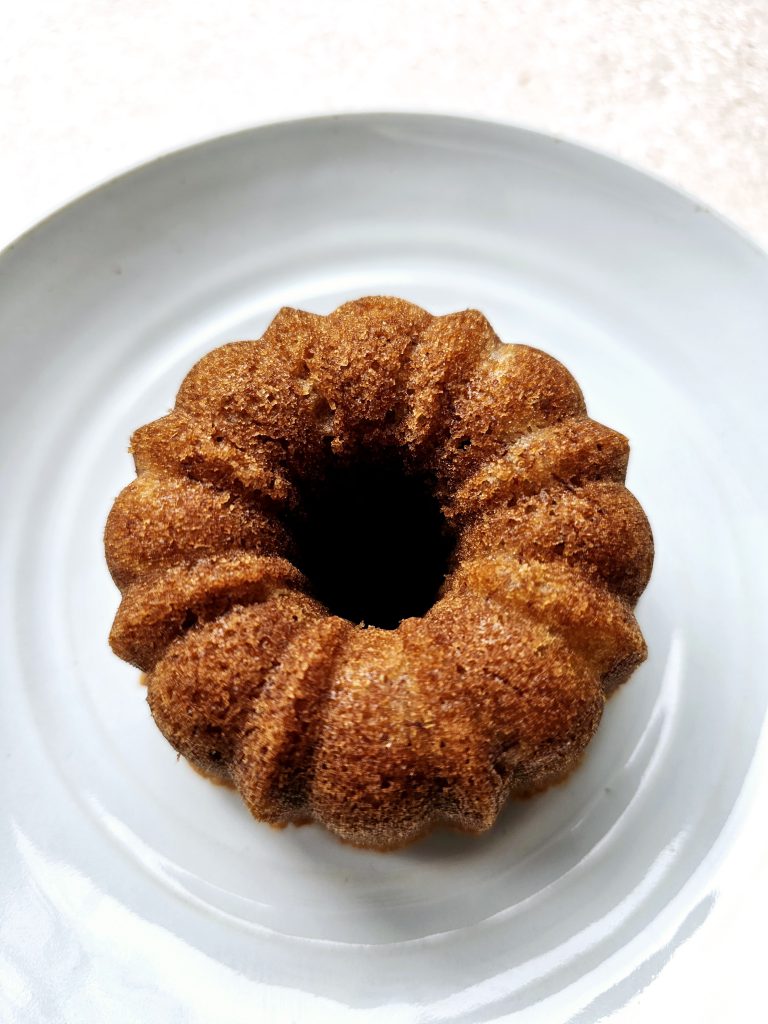
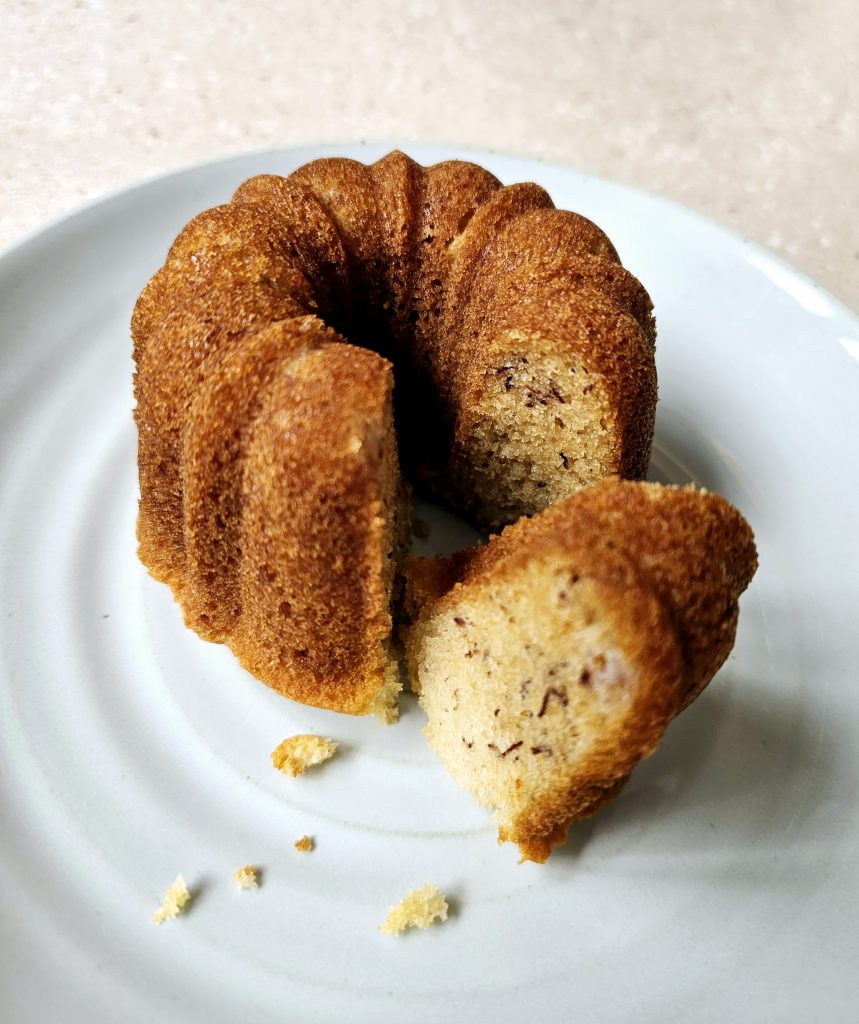
Substitutions and Add Ons
Instead of:
For the 6 cup bundt, add one of the following:
For the 10 cup bundt, add one of the following:
For the gluten-free version I used flour and raising agents from Freee. Here is a gluten-free banana bread recipe from Nigella Lawson
